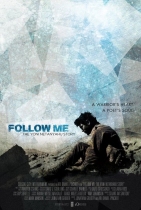
Follow Me: The Yoni Netanyahu Story
Directed by: Jonathan Gruber and Ari Daniel Pinchot
Produced by: Mark Manson, Jonathan Gruber, Stuart Savitsky, Ari Daniel Pinchot
Through a series of interviews, photograph and film montages, American directors Jonathan Gruber and Ari Daniel Pinchot tell the compelling story of Israeli military hero Yonatan Netanyahu. Gruber and Pinchot detail Yoni’s whimsical love of the world throughout his childhood, and strong bond with younger brothers Bibi, the current Prime Minister of Israel, and Iddo, a world renowned physician and playwright. The directors utilized testimony of childhood friends, family, and ex-wife to paint an idyllic portrait of the distinguished Netanyahu family. Yoni is described as a strong, precocious, natural born leader who was destined for greatness.
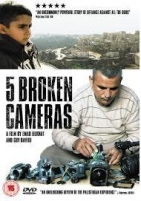
5 Broken Cameras (2011)
Directed by: Emad Burnat and Guy Davidi
Produced by: Emad Burnat and Guy Davidi
5 Broken Cameras is Palestinian film-maker Emad Burnat’s diary of his fellow villagers’ protest response to Israel’s security fence and to Jewish settlements on what he considers his land. Hailed as an artistic success, the film won an award at the prestigious Sundance Festival. The film alternates between scenes of protest activity and Burnat’s family life viewed through five successive video cameras. However, the Israeli soldiers, unwilling participants in the film, contend that the most controversial scenes were fabricated. The soldiers point out that the film editors joined together frames taken at different events to create the false appearance of Israeli soldiers using violence against demonstrators without provocation.
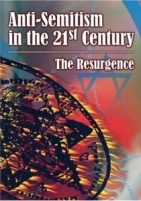
Anti-Semitism in the 21st Century: The Resurgence (2007)
Directed by: Andrew Goldberg
The documentary includes a rare examination of the vicious depictions and dehumanization of Jews in Arab TV shows, cartoons and speeches delivered to millions of Muslims all over the world via satellite TV and the Internet. A diverse group of commentators speak of the popularity in the Arab and Muslim world of anti-Semitic conspiracy theories.
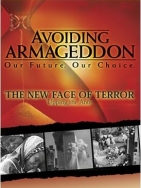
Avoiding Armageddon (2003) Episode 3: The New Face of Terrorism — Upping the Ante
Directed by: Steve Howard, Daphna Rubin, Michael Sheehan
While some of the segments on worldwide terrorism are informative and absorbing, the work as a whole places undue emphasis on Israel’s supposed involvement in terrorism, both historic and current, painting Israel as being at the root of much of the terrorism in the Middle East.
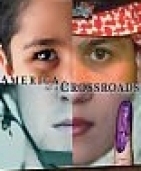
Campus Battleground (2007)
Directed by: Bill Jersey
The film focuses on pro-Palestinian and pro-Israel students at the University of California-Berkeley and Columbia University during the 2006 Spring semester. The film includes footage from protest demonstrations, a class lecture, and student gatherings addressed by well-known pro-Palestinian or pro-Israel speakers. The documentary is marred by significant omissions which result in misleading images both of the situation on North American campuses and the Israeli-Palestinian conflict itself.
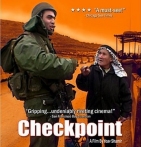
Checkpoint
Directed by: Yoav Shamir
Checkpoint is one of a group of films funded by The New Foundation for Cinema and TV that document the difficult circumstances under which the Palestinians live and hold Israel alone responsible for those circumstances. These films follow a hackneyed format: The Palestinians are depicted as victims, while Israelis are depicted primarily as soldiers, who are either callous and arrogant, or immature and doubt-ridden.
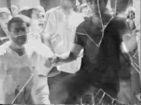
Confrontation @ Concordia
Directed by: Martin Himel
The documentary provides footage of the disturbing riot that prevented Netanyahu from speaking. Following the riot, the documentary followed several Muslim and Jewish students for the next few months, including Samir Elatrash, leader of the Solidarity for Palestinian Human Rights.
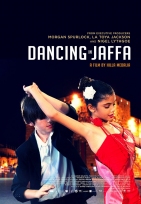
Dancing in Jaffa
Directed by: Hilla Medalia
There are repeated messages throughout the film about Israeli oppression of Palestinians and discrimination against “Palestinian Israelis.” Throughout the film, Arabs who live in Jaffa are referred to as Palestinian-Israeli, not as Israeli Arabs. The filmmaker, who was born in Jaffa and regards himself as a Palestinian, gives a distorted view of Jaffa as being a place filled with tension, caused primarily by right wing Israelis who threaten them. Someone with little or no knowledge of Israel who views this film would gain sympathy for the Palestinian cause and disdain for Israel. The film should have been about a wonderful program that brought together Arab and Jewish children for ballroom dance, but it isn’t. Besides the Palestinian nationalist slant, it is also largely a vehicle for satisfying the huge ego of the filmmaker, who was once a world champion ballroom dancer.
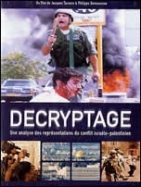
Décryptage (2002)
Directed by: Jacques Tarnero, Philippe Bensoussan
French media coverage, marred by extreme anti-Israel bias and unabashed pro-Palestinian partisanship, is considered a central factor in the recent upsurge in French anti-Semitism.
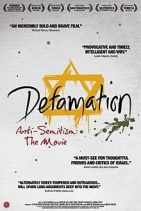
Defamation
Directed by: Yoav Shamir
Defamation is a hit piece on the Jewish community and on supporters of Israel. It is no wonder that it has been enthusiastically endorsed on various neo-Nazi internet web sites. The film does raise many troubling questions, though not the ones Shamir intended.
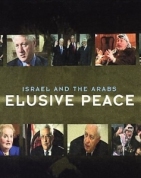
Elusive Peace: Israel and the Arabs
Directed by: Norma Percy
As with so many previous BBC documentaries on the Middle East, the latest effort, Elusive Peace, is yet another wasted opportunity. As in its tendentious predecessors, Palestinian officials like Saeb Erekat are trotted out over and over again as disappointed peacemakers. The documentary also manages to interview not a single victim of a Palestinian suicide bombing.
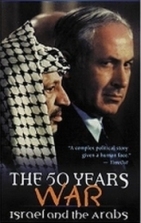
The 50 Years War: Israel and the Arabs (1998)
Directed by: David Ash, Dai Richards
The first major project of its kind in six years, the joint BBC-WGBH production traces the turbulent events of the last half century since the founding of the modern nation of Israel, presented from the vantage of statesmen, military experts and individuals involved in key events.

The Forgotten Refugees (2005)
Directed by: Michael Grynzspan
Produced by: Ralph Avi Goldwasser
“The Forgotten Refugees” is an exceptional documentary that addresses one of the least recognized refugee groups of the 20th century—the nearly one million Jews from Arab countries and Iran who were either forcibly expelled from their homes or otherwise compelled to leave.
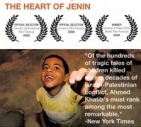
Heart of Jenin
Directed by: Lior Geller, Marcus Vetter
The film falls short of its promise by hewing to a narrow story line that omits crucial context. The entire story of Ismael Khatib’s humane decision to donate his son’s organs could not have taken place without the intercession of Israeli doctors and medical staff, the unseen heroes, who continue to administer critical care to individuals on both sides of the conflict despite the risks.
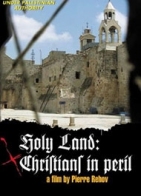
Holy Land: Christians In Peril
Directed by: Pierre Rehov
The film Christians in Peril is a shocking documentary that reveals how dangerous a situation it is for many Christians living in areas under Islamic rule. Pierre Rehov, an articulate English-speaking French journalist, reveals the shocking reality of the turmoil that is present in the Middle East region. Rehov’s accounts in this film are based on substantiated evidence accumulated in interviews, images. Rehov took on the unpopular task of presenting the plight and persecution of Christians in the Palestinian territories. His first hand narrative on why there has been a massive Christian Exodus from the Middle East is thought provoking and makes people question the media’s perpetuated, anti-Israel rhetoric.
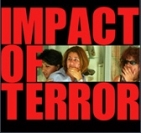
Impact of Terror
Directed by: Tim Wolochatiuk
A moving documentary about Israeli victims of terror struggling to cope in the aftermath of the Aug. 9, 2001 Sbarro pizzeria bombing in Jerusalem. It effectively maps out the victims’ scars –both physical and emotional – and humanizes the personal struggles of individuals who are often unnamed in news reports and relegated to casualty counts.
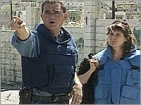
In the Line of Fire
Directed by: Patricia Naylor
The earlier version of the film — interspersed throughout with the same graphic film clip of a wounded Palestinian journalist shown in slow motion — was a study in subjective, one-sided reporting. The newer PBS version was cut by more than half but still shares many of the same problems as the original film — allegation presented as fact, lack of context for the shootings, and the use of selective quotes.
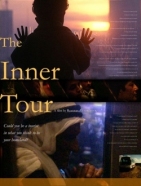
The Inner Tour (2001)
Directed by: Ra’anan Alexandrowicz
“The Inner Tour” follows a group of Palestinians on a three-day bus tour in Israel. By narrowing his focus to the personal feelings of the travelers and injecting no corrective commentary, challenge or background information, the director gives viewers a severely skewed picture of a complex and difficult subject.
Inside Israel’s Army
Directed by: Michal Zilberman, Michele Mitchell
Inside Israel’s Army, which aired on July 17, 2009, profiles the views and experiences of three Israeli reservists who served in the war in Lebanon in 2006 and Gaza in 2009. Correspondent Michele Mitchell and producer Michal Zilberman produced an excellent piece of journalism by handling their interviews in a non-judgmental manner while ensuring adherence to factual accuracy.
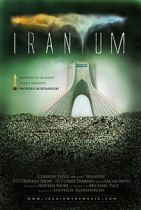
Iranium
Directed by: Alex Traiman
Produced by: Raphael Shore
It is literally the film that Iran does not want you to see. Canceled twice from being screened in Canada’s National Library and Archives due to Iranian pressure, government officials eventually stepped in and it was shown to a sold out crowd. The film uses graphics, experts in the field, and archival footage to examine the growing threat Iran poses to the West.
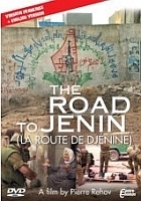
Jenin, Jenin / Road to Jenin
Directed by: Mohammed Bakri
Bakri charges Israel committed genocide in Jenin, killing untold numbers of civilians. The diametrically opposed view, as represented in another documentary, Road to Jenin, depicts a moral Israeli army fighting a just war against armed Palestinians in a hotbed of terrorism which spawned more than half the suicide bombings against Israeli civilians.
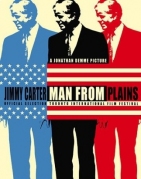
Jimmy Carter Man from Plains
Directed by: Jonathan Demme
The documentary glosses over challenges to the accuracy of the book, and instead frames the controversy as mostly revolving about the Carter’s use of the word “apartheid” in the title. Again and again, the film shows interviewers asking about the title. Again and again, we hear Carter’s rehearsed response. The documentary propagates some these false facts by allowing Carter to repeat them unchallenged.
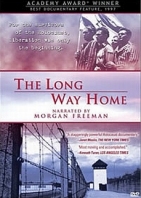
The Long Way Home (1997)
Directed by: Mark Jonathan Harris
The film highlights the personal accounts of several survivors, tying them into the larger narrative of events in postwar Europe and Palestine. It documents the unflagging efforts of others who helped them rebuild their lives in Palestine in the face of callous indifference by the international community.
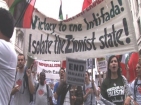
The Monster Among Us (2008)
Directed by: Allen Mondell, Cynthia Salzman Mondell
Anti-Semitism has surfaced on university campuses, in the media, on the streets, at political demonstrations, on the internet and in seemingly innocent social situations. Jews from all walks of life in six different European countries tell of being attacked in their neighborhoods, of cemeteries desecrated, of synagogues burned, of being ostracized at work.
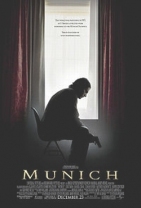
Munich (2005)
Directed by: Steven Spielberg
This film is about the murder of Israeli Olympic athletes and the effort to track down the crime’s masterminds. In Munich there are no Palestinians clamoring for the destruction of Israel – as all Palestinian groups did then. Tony Kushner, a playwright brought in by Spielberg, has repeatedly called the creation of Israel a “mistake,” blamed Israel for “the whole shameful history of the dreadful suffering of the Palestinian people”.
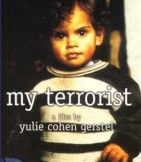
My Terrorist (2002)
Directed by: Yulie Cohen Gerstel
This film chronicles the personal journey of the filmmaker from victim of a terrorist attack to advocate for the jailed perpetrator. Gerstel’s campaign to free Mihyi serves as the vehicle for Gerstel to promote the political agenda she shares with her mentor, Ha’aretz columnist Gideon Levy who also appears in the film. They believe that Palestinians should not be blamed for any action, no matter how heinous.
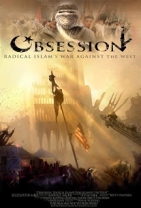
Obsession
Directed by: Wayne Kopping
This film is a powerful collection of primary source footage, woven together to highlight the dangers of fanatical Islamic ideology. The film also interviews experts such as Prof Khaleel Mohammed; journalists such as Khaled Abu Toameh; and individuals who have lived in the Islamist environment.
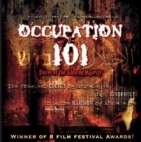
Occupation 101
Directed by: Sufyan Omeish, Abdallah Omeish
This blanket excusal of violence introduces Occupation 101, a film designed to evoke sympathy for Palestinians and contempt for Israel. What follows is ninety minutes of indoctrination. Scenes of squalid refugee camps, Israeli soldiers confronting protesters, despairing Palestinian mothers and teary-eyed children serve as a backdrop to well-rehearsed indictments of the Jewish state by a who’s who of anti-Israel activists.
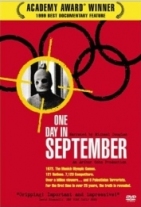
One Day in September (1999)
Directed by: Kevin Macdonald
The events of that day and their overall impact are told through live film clips, news broadcasts and interviews with police, close relatives of victims, and the sole surviving perpetrator. The film reveals the lack of vigilance on the part of the Germans, Israelis and Olympic authorities and exposes the cynicism and bungling that led to its tragic conclusion–all of which indicates the need for vigorous and aggressive counter-terrorist capabilities.
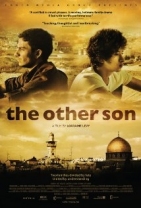
The Other Son (Le fils de l’autre)
Directed by: Lorraine Lévy
A simple and creative fictional story that is muddled by both a script that fails to do much of anything and inaccuracies about the current situation in Israel. Two sons are accidentally switched at birth at a hospital in Haifa, with Joseph, the Palestinian child, unknowingly is raised as a Jewish Israeli. Meanwhile the Jewish Israeli child, Yassin, has been raised as a Muslim Palestinian in the West Bank.
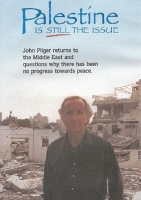
Palestine is Still the Issue (2002)
Directed by: John Pilger
Filmmaker John Pilger does not pretend to deliver an objective view of his subject matter. In fact, he scoffs at the whole notion of journalistic impartiality. “Impartiality and objectivity now mean the establishment point of view…” he declared derisively in a 2002 interview with the Progressive. Those journalists who claim to be objective, according to Pilger, only “channel the official truth,” and thereby “simply cipher and transmit lies.”
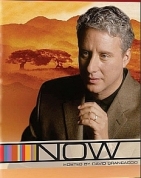
Peace and Prosperity in the West Bank? (2009)
Directed by: Brian Epstein, Brenda Breslauer, Monica Iskander
Film adopts the premise that Israeli occupation is the direct cause of Palestinian hardship, but does not explain that the occupation arose as a result of the stubborn refusal of the Arabs to live at peace with the Jewish state. Refreshingly, the segment moves beyond dogma, focusing instead on practical problems of developing Palestinian society from the ground up.
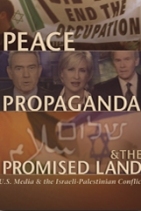
Peace, Propaganda and the Promised Land
Directed by: Bathsheba Ratzkoff, Sut Jhally
Produced by: American Media Education Foundation
In the words of the New York Times, a “pro-Palestinian documentary [that] presents a condensed argument in favor of prosecuting Israeli leaders in the court of American public opinion.” And in order to achieve a conviction, the movie’s producers and directors bury exculpatory evidence in a manner that would make even the most ferocious district attorney cringe.
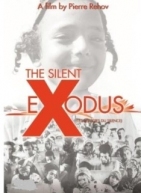
The Silent Exodus (2004)
Directed by: Pierre Rehov
French filmmaker Pierre Rehov, best known for his expose “The Road to Jenin,” has also made an excellent film called “The Silent Exodus” on Jewish refugees from Arab countries. This 2004 film is largely in French and Hebrew with English subtitles, and it covers much of the same historical ground as “The Forgotten Refugees.”

The Stones Cry Out
Directed by: Yasmine Perni
Perni promotes this distorted narrative with the help of prominent and well-known pro-Palestinian activists who typically misrepresent the events in the Middle East by omitting crucial historical facts. The tendency of some of these commentators to ignore or deny the role Islamist ideology plays in fomenting violence in the Middle East is well on display in this movie.
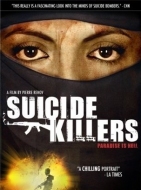
Suicide Killers (2006)
Directed by: Pierre Rehov
Film delves into the aberrant phenomenon of suicide killings that has gained currency among radical Islamists over the last decade. The filmmaker investigates the motives and driving forces behind the attackers through interviews with psychologists, terrorism experts, family members, victims, and most compellingly, with failed and would-be suicide killers themselves.
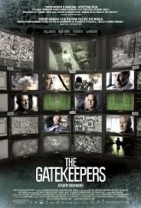
The Gatekeepers
Directed by: Dror Moreh
Produced by: Estelle Fialon, Philippa Kowarsky, Dror Moreh
The Gatekeepers (שומרי הסף) is a film by Israeli director Dror Moreh that tells the story of the Shin Bet, the Israeli security service, from the perspective of six of its former heads. The film uses interviews, archival footage, and computer animation to illustrate the role that the group played from the Six-Day War to the present. The film was nominated for Best Documentary Feature at the 85th Academy Awards.
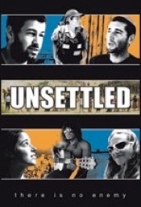
Unsettled
Directed by: Adam Hootnick
Produced by: Adam Hootnick
Unsettled, a 2007 documentary, and winner of the Special Jury Price for a documentary feature, the Grand Jury Prize for best documentary, the Jury Prize for best documentary, and the Audience Award for best documentary, was written, directed, and produced by Adam Hootnick. The film depicts the personal experiences of six Israeli Jews who were uprooted from Gaza during Israel’s disengagement from the territory in 2005– a move which came after much deliberation and debate. Ariel Sharon, Israel’s then prime minister, finally decided to test the theory that evacuating Jews from Gaza and handing over complete control of that land to the Palestinians would result in a Palestinian state and a lasting peace; the disengagement was to give the Palestinian Authority a chance to prove itself as capable of establishing a modern state with competent self-rule.
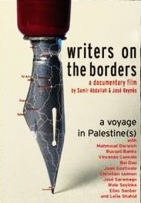
Writers on the Borders (2004)
Directed by: Samir Abdullah, Jose Reynes
Film is essentially a propaganda film designed to inflame public opinion against Israel. The film likens Israel to the South African apartheid state, compares Israelis to Nazis and presents Palestinians as the tragic, blameless victims of Israeli brutality.

